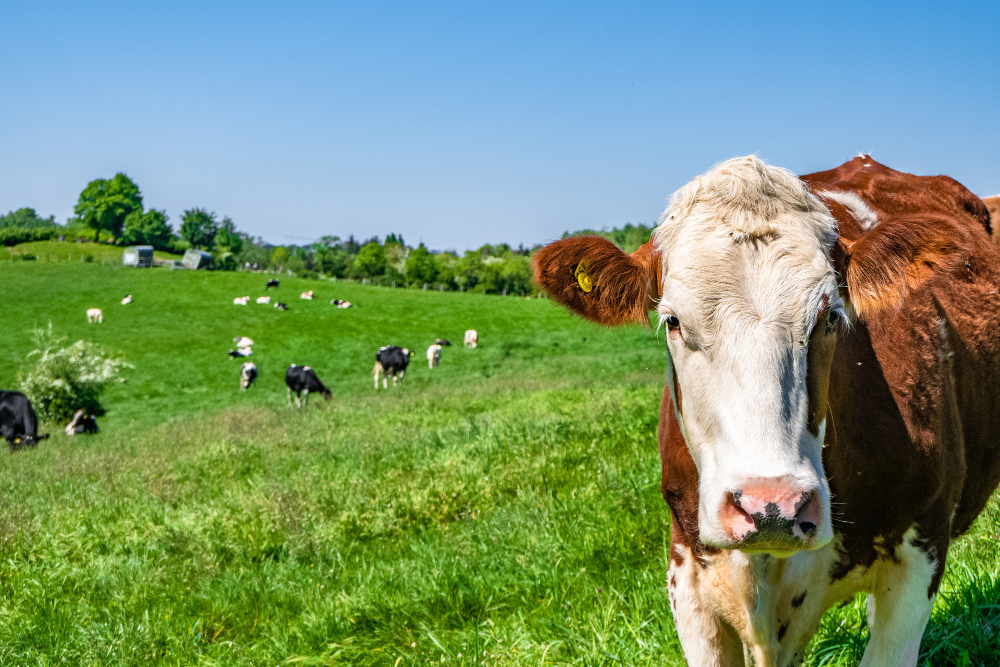PROVACUNO has presented the report “Analysis of the beef and veal sector in Spain”, the largest and most exhaustive X-ray carried out to date, which allows to know in detail where the sector is, which will serve as a guide to undertake actions aimed at achieving a better structure and competitiveness of the sector. The report has used two sources of information and statistics: the Spanish Agricultural Guarantee Fund (FEGA), attached to the Ministry of Agriculture, Fisheries and Food (MAPA); and a survey carried out on typical farms spread throughout the territory.
Conclusions
- LThe size of the farms is one of the data that emerges from this report where almost 99% of the farms have a census of less than 400 UGM, and the most frequent size group is between 20 and 50 animals.
- 86% of farms are owned by individuals and more than 13% remaining belongs to limited companies, agrarian transformation companies, communities of property and cooperatives. Less than 1% of the owners are public limited companies.
- 87% of beef farms are located in municipalities considered rural by Spanish law. Of these, 29% of the total are located in rural areas with a serious risk of depopulation, which are those with less than 5,000 inhabitants and less than 8 inhabitants/km2, and 11% of the total in municipalities considered rural at risk of depopulation. depopulation because they have less than 20,000 inhabitants between 8 and 12.5 h/km2.
- In those areas at risk of depopulation, the role of beef cattle activity is essential, both from an economic, social and environmental point of view. This fact is demonstrated by the data obtained from the surveys on the farms: 91% of the farmers live in the region where their farm is located and 77% of the purchases made by the producers are made in those areas.

The use of these natural resources, through grazing, is the guarantee of the maintenance of our rural landscapes, in addition to helping to clear the mountains, contributing to the prevention of fires
- From an environmental point of view, it is an essential activity for the maintenance and conservation of our territories. The basis of the feeding of our productive model are pastures, complemented with fodder, straw and fodder. The use of these natural resources, through grazing, is the guarantee of the maintenance of our rural landscapes, in addition to helping to clear the mountains, contributing to the prevention of fires.
- On the other hand, beef farms produce manure that is an excellent source of organic matter and nutrients to improve soil structure and fertilize crop fields, in addition to promoting the circular economy and reducing dependence on chemical fertilizers.
- Another interesting result of this study shows how in the surroundings of 93% of the beef cattle farms, the areas of environmental protection have been increased in the last five years. In addition, 26% of the producers consulted graze their cows in environmental protection areas, whether they are natural parks, Natura 2000 areas, special protection areas for birds (ZEPA), etc.
Beef farms produce manure which is an excellent source of organic matter and nutrients to improve soil structure and fertilize crop fields
Beef does not deforest, it does prevent fires
The conference was attended by María Gafo Gómez-Zamalloa belonging to the European Commission, who highlighted that “rural areas are the fabric of our society and the heart of our economy” stressing that 83% of European territory is rural and only houses 30% of the population. In the words of President Úrsula Von der Leyen, she Gafo moved Europe’s position to “value and preserve our rural areas and invest in their future”.
Esperanza Orellana, general director of Productions and Markets of the Ministry of Agriculture, Fisheries and Food (MAPA) closed the presentation of the report by transferring the importance of “monitoring the sector to analyze the data and make decisions”
The day also included the intervention of Eliseo Isla, president of PROVACUNO, who advocated the need to contemplate the report when talking about Beef in our country because “Spain is not Argentina, Spain is not Brazil, nor the United States, nor Australia. Spain is neither better nor worse, but it is different, as our production model is also different” alluding to the fact that, in Spain, Beef does not deforest, if it prevents fires, it does not know what “macro-farms” are and it is one of the of the best allies to keep the towns alive, since, according to Isla, “this is the reality of the beef sector in Spain”.
The report is part of the work proposed within PROVACUNO’s 2050 Carbon Neutral Beef Strategy, whose objective is to move towards climate neutrality in the entire value chain
















